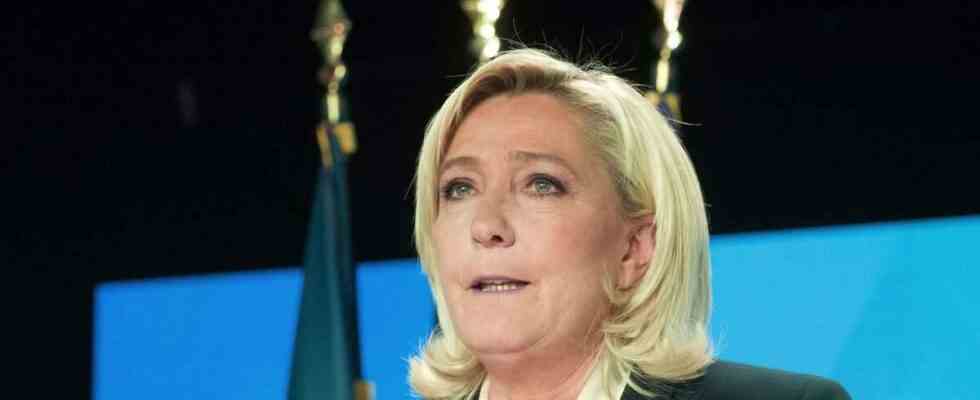“Emmanuel Macron will do nothing to repair the fractures of the country”, “the French express this evening the wish for a strong counter-power to that of Emmanuel Macron”… During his speech Sunday evening after the announcement of the results of the second round of the presidential election, Marine Le Pen repeatedly mentioned the name of her opponent.
However, at no time did she send her congratulations. A point that offends some political analysts and Internet users, who were offended by a lack of respect for a “republican tradition” wanting the defeated candidate to congratulate his winner in public the same evening. A way of acknowledging defeat and endorsing the outcome of the election.
If, later in the evening, his entourage confirmed a call to the elected president to congratulate him, did the candidate of the National Rally break a custom of the Fifth Republic? We take stock.
FAKE OFF
Congratulating your opponent for his victory is sport, but it is not automatic. One thing is certain: under the Ve, all the candidates beaten in the second round had a word for the winner: “It’s a way of recognizing the verdict of the ballot box”, explains Mathias Bernard, professor of contemporary history and movements policies at the University of Clermont-Auvergne. The only exception to the picture: François Mitterrand. Beaten by Charles de Gaulle in 1965, rumor lends him the following justification: “Do you see Gambetta congratulating Napoleon III? »
For congratulations, it’s a different story. Only three defeated candidates made them public on election night. Alain Poher, in 1969: reading the telegram that he sent to Georges Pompidou, he says he sends his “personal congratulations”. Then Lionel Jospin in 1995: “A majority voted for Jacques Chirac, I congratulate him on his election as President of the Republic and I wish him good luck. And the third is none other than Marine Le Pen in 2017. On the evening of the second round, she said she called Emmanuel Macron “to congratulate him”.
The trendiest good wishes
Others assured a posteriori to have done it in private, like Valéry Giscard d’Estaing after his defeat against François Mitterrand in 1981Where Segolene Royal in 2007 against Nicolas Sarkozy. But they refrained from doing it in front of the cameras. They limited themselves to wishes of success to the new president and the French, like François Mitterrand to “VGE” in 1974 and Nicolas Sarkozy to François Hollande in 2012.
“It is more this courtesy that makes republican tradition, specifies Mathias Bernard, a mark of recognition of the suffrage and “fair play””, comments Mathias Bernard.
The Le Pens against the current
This fair play therefore, only Jean-Marie and Marine Le Pen, in 2002 and in 2022, derogated from it by citing their opponent only to criticize his positions. An expected posture for the father, a little more surprising for the daughter, according to Mathias Bernard: “This goes against his business of demonization established for years. »
But for the academic, this attitude is undoubtedly not unrelated to the campaign for the legislative elections, launched even before the second round by Jean-Luc Mélenchon: “Usually, there is a ‘truce of the confectioners’ on the evening of the second round. But with the three strong blocks that emerged from this presidential election, the different momentum observed and the proximity of the legislative elections, Marine Le Pen perhaps did not want to end the electoral campaign. »

